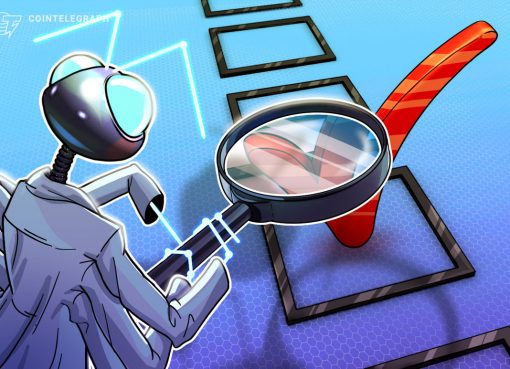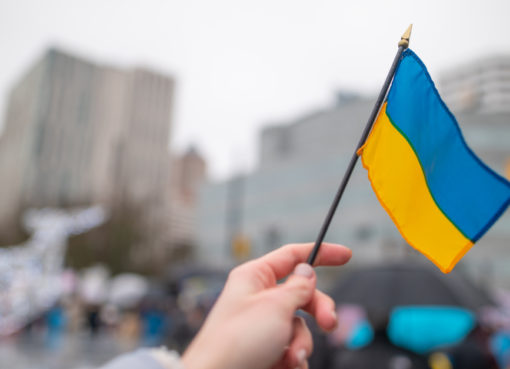Frozen funds in crypto, explained
Frozen funds typically mean access to such funds has been restricted or temporarily halted.
Several factors, such as technological errors, security precautions, disagreements, investigations and regulatory compliance, can lead to such circumstances. So, can a crypto exchange freeze your account?
If exchanges or financial institutions suspect fraudulent activity or money laundering related to the account, they may freeze funds. Furthermore, freezing may occur as a preventive measure in reaction to possible security lapses or unwanted access attempts.
Funds may also be frozen during disagreements or ongoing investigations until the issue is resolved, guaranteeing a just outcome for all parties concerned. Temporary freezes resulting from technical problems with the blockchain or exchange infrastructure can also affect the availability of funds. For instance, in 2022, Binance temporarily suspended withdrawals of Ethereum and ERC-20 tokens due to the Merge.
When users experience frozen funds, they should contact the relevant platform or service provider immediately to identify the issue and find a solution. To address and possibly unfreeze the funds, they must adhere to the particular guidelines and instructions provided by the platform under consideration.
Does the principle of immutability apply to frozen crypto assets?
From the standpoint of frozen assets, immutability in blockchain functions as an unyielding vault, protecting and preserving value without the possibility of alteration.
This concept is fundamental for financial applications involving tokenized assets or cryptocurrencies. It levels the playing field by ensuring an asset’s value and ownership stay transparent and unchangeable once it is frozen or stored on the blockchain.
Comparable to being locked in ice, it is an unalterable condition that ensures the durability and integrity of assets kept on the blockchain. This principle provides protection against unauthorized modifications or tampering with frozen assets. Furthermore, immutability protects the transaction history by maintaining its accuracy and thwarting dishonest manipulations.
Circumstances leading to cryptocurrency freezing
Cryptocurrency freezing can occur under various circumstances driven by legal and regulatory frameworks, ensuring compliance and addressing specific scenarios where freezing becomes necessary.
Legal and compliance investigations
Assets related to cryptocurrencies may be frozen by regulatory bodies looking into cases of fraud, money laundering or financing of terrorism. This action complies with Know Your Customer (KYC) and Anti-Money Laundering (AML) regulations, enabling law enforcement to halt transactions and investigate suspicious activity.
For instance, the Financial Action Task Force (FATF) provides guidelines to regulate cryptocurrencies and prevent illicit activities, including freezing assets to aid investigations.
Court orders and judicial proceedings
Orders to freeze cryptocurrency assets may be issued by courts in disagreements, litigation or criminal cases. This freeze stops assets from being transferred or sold until court cases are concluded or decisions are made.
Regulatory enforcement actions
Assets may be frozen by regulatory bodies, such as tax authorities or financial regulators, as part of enforcement actions against companies or people breaking financial regulations. This ensures adherence and permits appropriate inquiries.
Security measures by crypto exchanges or wallet providers
Cryptocurrency exchanges or wallet providers may freeze assets as a precaution against unauthorized access attempts, suspicious activity or security breaches. In addition to safeguarding user funds, this also prevents possible losses due to security flaws.
Stablecoin depegging
Platforms may freeze transactions involving a stablecoin if it loses its peg to its underlying asset (such as the United States dollar) to stop further destabilization or to evaluate the situation.
How can cryptocurrencies be frozen on a blockchain?
There are several mechanisms employed to freeze cryptocurrencies, including centralized exchanges and wallets, legal and regulatory interventions, and smart contracts.
Centralized exchanges and wallets
Centralized platforms possess the authority to freeze assets under their control. Accounts or transactions may be suspended due to security concerns, legal requirements or compliance issues. This method gives the platform centralized control over user funds, making it possible to quickly freeze them, but it also raises questions about central authority and trust.
Legal and regulatory interventions
Lawmakers can impose restrictions or legal orders that force financial institutions or exchanges to freeze a specific type of cryptocurrency. This approach ensures jurisdictional law compliance by providing asset freezes with legal backing and conforming to established legal frameworks.
For example, China has repeatedly cracked down on cryptocurrency trading and mining, leading to significant disruptions in these activities within its jurisdiction.
Smart contracts
Smart contracts on blockchain networks can facilitate freezing mechanisms through code. A smart contract’s programmed conditions may include provisions that freeze assets in response to predetermined scenarios, like non-compliance or dispute resolution. With this decentralized method, freezing is automated according to preset criteria, negating the need for intervention from a central authority.
For example, some protocols in decentralized finance (DeFi) may include smart contracts that permit asset freezing if certain conditions are satisfied, like loan default or contract violation. When implementing freezes, smart contracts ensure decentralization, automation and transparency.
Ethical concerns regarding freezing assets in a decentralized system
Freezing assets in decentralized systems raises ethical questions because of the conflict between autonomy and control.
Balancing the necessity of safeguarding against illicit activities with preserving decentralization and individual autonomy remains a critical ethical challenge in managing asset freezes within decentralized systems.
Assets may need to be frozen to stop illegal activity or breaches, but doing so in a decentralized system raises concerns about justice and governance. One ethical issue is that a small group or entity might abuse the ability to freeze, undermining decentralization’s tenets and consolidating power in several hands.
Furthermore, using smart contracts to freeze assets may not provide the flexibility required for making thoughtful decisions under challenging circumstances, which could result in unfair or irreversible actions. Additionally, the irreversibility of some blockchain transactions creates moral problems because it is difficult to correct errors or deal with unforeseen consequences once assets are frozen.
Technical difficulties in implementing freezes without compromising decentralization
Maintaining the decentralized nature of a blockchain system, which emphasizes autonomy and peer-to-peer control, poses challenges when attempting to enforce freezes without compromising these principles.
One issue is that blockchain data is immutable; once a transaction is recorded, it becomes difficult to change or freeze without jeopardizing the system’s integrity. Although smart contracts are frequently essential for freezes, they cannot constantly adjust to changing conditions or legal mandates without possibly creating new central control points.
Furthermore, it is challenging to coordinate consensus within a decentralized network to freeze assets in a way that is transparent, timely and widely accepted. To overcome technical obstacles, a careful balance must be struck between upholding decentralized ideals and creating systems that can effectively and compliantly implement freezes.
Technological innovations in smart contract adaptability, blockchain governance and consensus mechanisms are critical to overcoming these obstacles and maintaining decentralization.




